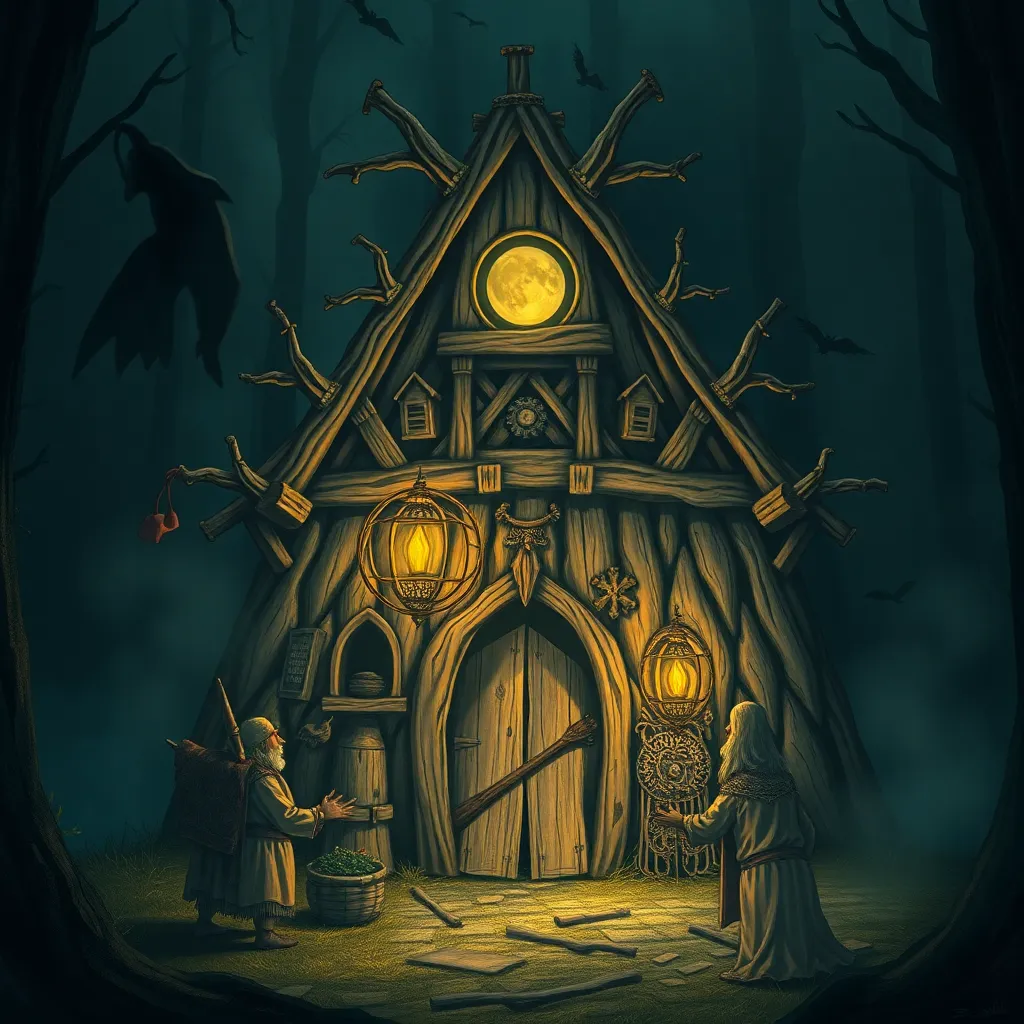5 End of the World Myths That Have Inspired Movies and Books
I. Introduction
End-of-the-world myths have captivated human imagination for centuries, weaving tales of destruction and renewal that resonate across cultures and time periods. These narratives capture our deepest fears and hopes, often serving as cautionary tales about human behavior and the consequences of our actions. In this article, we will explore five specific end-of-the-world myths that have inspired a multitude of movies and books, examining their origins, representations in popular media, and their cultural significance.
II. The Mayan Calendar and the 2012 Phenomenon
The Mayan calendar, particularly the Long Count calendar, gained notoriety as it approached its end date on December 21, 2012. Many interpreted this date as a prophecy of an impending apocalypse, leading to widespread public fascination and concern.
Movies like 2012, directed by Roland Emmerich, capitalized on this myth, portraying a catastrophic series of events leading to the end of civilization. The film depicted massive natural disasters, including earthquakes and tsunamis, which resonated with audiences and sparked discussions about climate change and humanity’s vulnerability.
- Impact on Public Perception: The 2012 phenomenon ignited global conversations about the Mayans’ predictions and the nature of time, propelling a wave of conspiracy theories and claims about the end of the world.
- Cultural Discussions: The myth highlighted humanity’s existential fears, prompting reflections on our relationship with nature and the consequences of technological advancement.
III. The Great Flood: Myths Across Cultures
The Great Flood is a recurring theme in many cultures, with stories such as Noah’s Ark in the Bible and the Epic of Gilgamesh in Mesopotamian literature. These narratives often serve as moral lessons and showcase themes of divine retribution and human survival.
In the film Waterworld, the flood myth is reimagined in a dystopian future where the earth is submerged, presenting a world where humanity struggles for survival amidst endless water. This portrayal reflects the flood myth’s themes of rebirth and the resilience of the human spirit.
- Themes of Rebirth: Flood myths often emphasize the idea of a new beginning, where survivors rebuild society from the remnants of the old world.
- Cultural Resonance: These stories resonate with audiences as they confront the fragility of life and the possibility of regeneration after catastrophe.
IV. The Four Horsemen of the Apocalypse
The Four Horsemen of the Apocalypse, described in the biblical Book of Revelation, symbolize conquest, war, famine, and death. These figures have inspired countless interpretations in literature and film, representing the various forces that can lead to societal collapse.
Modern media, including the The Omen series, often explore the implications of these figures in contemporary narratives. The horsemen serve as metaphors for humanity’s darker tendencies and the existential threats we face.
- Symbolism: Each horseman represents a different aspect of human suffering and societal decline, urging audiences to confront the consequences of inaction.
- Contemporary Interpretations: The themes of the Four Horsemen are relevant today, as they echo real-world issues like climate change, warfare, and inequality.
V. The Rapture and Its Cultural Impact
The Rapture, a belief in some Christian traditions, describes an event where believers are taken to heaven at the end of times, while the rest of humanity faces tribulation. This concept has sparked numerous depictions in literature and film.
The Left Behind series, both in book and film form, explores the aftermath of the Rapture, focusing on those left behind and their struggles to navigate a world in chaos. These narratives often touch on themes of morality, faith, and redemption.
- Societal Reactions: The Rapture myth has provoked discussions about faith, morality, and the nature of salvation, influencing the beliefs and behaviors of many.
- Cultural Reflections: The portrayal of the Rapture in media underscores humanity’s quest for meaning and understanding in the face of uncertainty.
VI. Zombies and the Apocalypse: The Rise of the Undead
The zombie myth has its roots in folklore, where the undead were often depicted as reanimated corpses. Over time, this myth evolved, particularly in the 20th century, becoming a powerful symbol of societal fears and anxieties.
Popular narratives, such as The Walking Dead and World War Z, explore the collapse of society in the wake of a zombie apocalypse. These stories often serve as metaphors for real-world issues, including disease, consumerism, and existential dread.
- Societal Fears: The rise of zombies in popular culture reflects a deep-seated anxiety about losing control, whether it be through pandemics, societal breakdowns, or dehumanization.
- Cultural Commentary: Zombie narratives often critique modern life, exploring themes of survival, community, and the human condition.
VII. Climate Catastrophe: Environmental Myths of Doom
The concept of climate catastrophe has emerged as a modern end-of-the-world myth, rooted in real fears about environmental degradation and climate change. Stories depicting ecological collapse highlight the urgent need for awareness and action.
Films like The Day After Tomorrow dramatize the potential consequences of climate change, portraying a world ravaged by extreme weather and natural disasters. These narratives aim to raise awareness and provoke discussion about humanity’s role in environmental stewardship.
- Historical Roots: Environmental myths have evolved from earlier apocalyptic tales, reflecting humanity’s changing relationship with nature.
- Influence on Storytelling: These narratives resonate with audiences, emphasizing the importance of conservation and proactive measures to combat climate change.
VIII. The Role of Science Fiction in Exploring End Times
Science fiction has long served as a platform for exploring end-of-the-world scenarios, allowing authors and filmmakers to speculate on existential threats facing humanity. This genre often examines the implications of technological advancement, societal collapse, and human resilience.
Key works such as The Road and Children of Men delve into dystopian futures, showcasing the fragility of civilization and the enduring human spirit amidst despair.
- Existential Threats: Science fiction narratives often reflect societal fears regarding technology, war, and environmental collapse, prompting audiences to consider the consequences of our choices.
- Reflections on Humanity: These stories encourage introspection about what it means to be human in the face of adversity, exploring themes of hope, survival, and redemption.
IX. The Psychological Impact of End-of-the-World Myths
End-of-the-world myths not only shape cultural narratives but also have profound psychological effects on individuals and societies. These stories can evoke fear, anxiety, and contemplation about our existence and the future of humanity.
As we navigate the complexities of modern life, these myths serve as mirrors reflecting our deepest concerns and aspirations. They challenge us to confront our mortality, our responsibilities to the planet, and our connections with one another.
In conclusion, the exploration of end-of-the-world myths reveals their enduring power in shaping cultural narratives and influencing societal beliefs. From ancient flood tales to contemporary zombie apocalypses, these stories continue to resonate, reminding us of the fragility of existence and the resilience of the human spirit.



